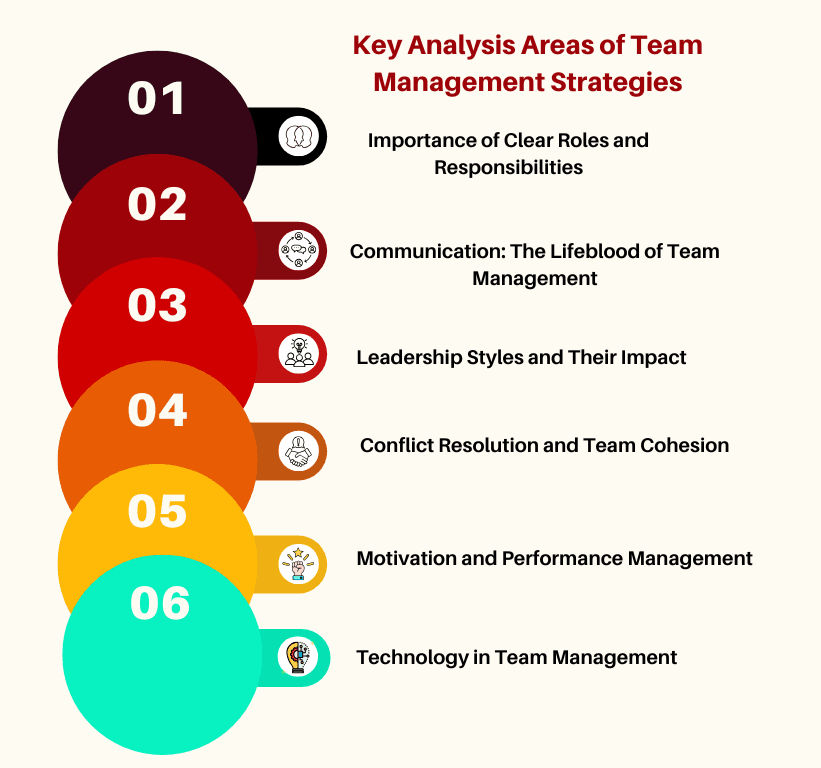Effective team management is a cornerstone of successful project management. It involves orchestrating a diverse group of individuals to work towards a common goal within a set timeline and budget. While the fundamentals of team management—such as communication, leadership, and delegation—are well-understood, the complexities and challenges of implementing these principles in real-world projects necessitate a more critical examination.

The Importance of Clear Roles and Responsibilities
One of the foundational elements of team management is the clear definition of roles and responsibilities. Without this clarity, teams can quickly become dysfunctional, with overlapping duties and unaddressed tasks. A critical approach to defining roles involves not just assigning tasks but ensuring that each team member understands the scope and significance of their responsibilities. This can be facilitated through detailed job descriptions, regular updates, and feedback sessions.
However, rigid adherence to predefined roles can stifle creativity and flexibility. Modern project environments often require agility, where team members must be willing to step outside their usual roles to address emerging challenges. Therefore, a balance must be struck between clear role definitions and the flexibility to adapt as the project evolves.
Communication: The Lifeblood of Team Management
Effective communication is universally acknowledged as vital in team management. This includes not only the dissemination of information but also active listening and constructive feedback. Traditional communication tools like meetings, emails, and reports are being supplemented with advanced project management software that facilitates real-time collaboration.
Despite the availability of these tools, communication breakdowns remain a common issue. This often stems from information overload, misinterpretations, and the varied communication styles of team members. A critical approach to improving communication involves tailoring communication strategies to the needs and preferences of the team, promoting an open and inclusive culture, and utilizing technology to enhance but not overwhelm communication efforts.
Leadership Styles and Their Impact
Leadership in team management is not one-size-fits-all. Different projects and teams may require different leadership styles, from authoritative to democratic, to laissez-faire. Critical analysis of leadership styles involves understanding their strengths and limitations in various contexts.
For instance, an authoritative style can provide clear direction and quick decision-making, which is beneficial in crisis situations. However, it can also lead to a lack of team input and reduced morale if overused. Conversely, a democratic style fosters collaboration and team engagement but can slow down decision-making processes. Effective leaders often blend different styles, adapting their approach to the specific needs of the project and team dynamics.
Conflict Resolution and Team Cohesion
Conflict is inevitable in any team, especially in high-pressure project environments. Effective team management involves not only resolving conflicts but also leveraging them to drive innovation and improvement. A critical approach to conflict resolution includes identifying the root causes of conflicts, whether they are personal, professional, or situational.
Strategies for resolving conflicts vary, from mediation and negotiation to reassigning roles or adjusting workloads. The goal is to transform conflict into a constructive force that enhances team cohesion rather than diminishes it. Regular team-building activities and a focus on creating a positive team culture are essential in maintaining cohesion.
Motivation and Performance Management
Motivating a team is a multifaceted challenge that involves understanding individual and collective drivers. Traditional motivators like financial incentives are often complemented by intrinsic motivators such as recognition, career development opportunities, and a sense of accomplishment.
Critical performance management goes beyond annual reviews to continuous feedback and development. This includes setting clear, achievable goals, providing regular feedback, and recognizing both individual and team achievements. It also involves addressing underperformance through supportive and corrective measures.
The Role of Technology in Team Management
Technology plays an increasingly vital role in team management, offering tools for collaboration, communication, and project tracking. Project management software like Trello, Asana, and Jira provide platforms for teams to manage tasks, deadlines, and resources efficiently.
However, reliance on technology also presents challenges. It can create a barrier to personal interaction, lead to over-reliance on automated processes, and pose cybersecurity risks. A critical approach involves leveraging technology to enhance, rather than replace, human interactions and ensuring that all team members are proficient in using these tools.
Conclusion
Effective team management in project management is a complex, dynamic process that requires a balance of clear roles, effective communication, adaptive leadership, conflict resolution, and motivation strategies. While technology provides valuable tools, the human elements of empathy, flexibility, and understanding remain irreplaceable. A critical examination of these facets highlights the need for continuous learning, adaptation, and a nuanced approach to managing diverse teams in a fast-paced project environment.

